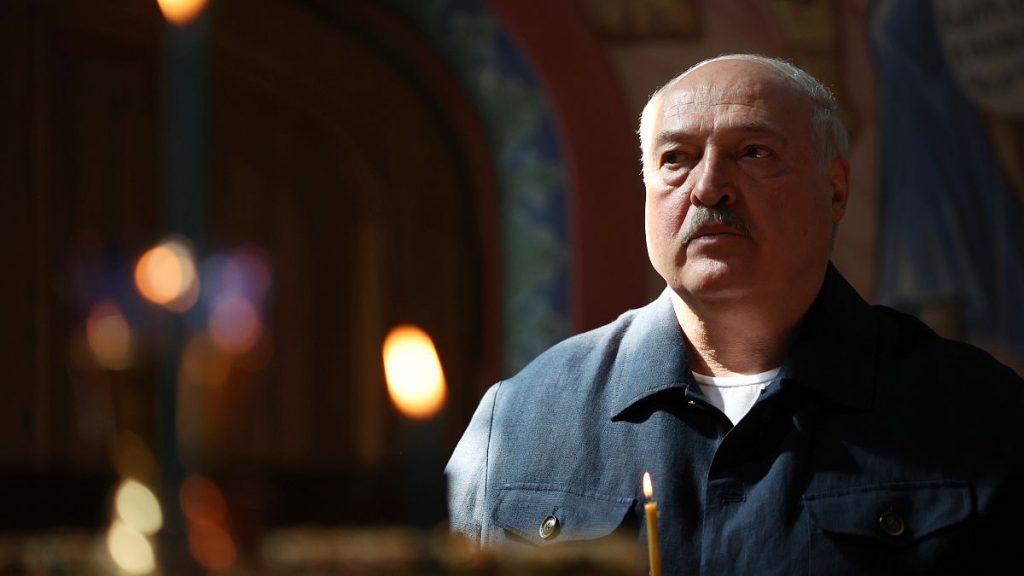Belarusian President Alexander Lukashenko recently granted a pardon to a German citizen named Rico Krieger who had been sentenced to death on terrorism charges. It is unclear whether his capital sentence will be replaced with life in prison or if he will be released altogether. Krieger has been in custody since his arrest in October, accused of photographing military facilities and staging an explosion at a railway station on orders from Ukrainian special services. Belarus is the only country in Europe that still carries out capital punishment.
Lukashenko called a meeting earlier to discuss an appeal from Krieger, promising to consider his request for a pardon and announce his decision later. Belarus’ Foreign Ministry claims to have proposed specific solutions for the situation and is in touch with German officials about Krieger’s fate, though no further details have been provided by either side. The German government has expressed concern, offering consular support to Krieger. Activists believe Krieger may have been a victim of a provocation by Belarus’ top security agency, the KGB, amid political repression in the country following Lukashenko’s controversial re-election in 2020.
The crackdown on protests in Belarus after Lukashenko’s re-election led to thousands of arrests and reports of mistreatment by authorities. Pavel Sapelka of Belarus’ Viasna human rights group suggests that Krieger’s case is part of a pattern of harsh tactics employed by the Belarusian government. He points out that some Belarusians have been convicted based on remarks made in messaging chats created by KGB officers posing as Ukrainians. This has led to speculation that Belarusian authorities may have coordinated with Russian spy agencies, potentially as part of a swap involving another prisoner in Germany.
Russian President Vladimir Putin hinted at a possible exchange involving Vadim Krasikov, a Russian serving a life sentence in Germany for the killing of a Georgian citizen in Berlin in 2019, when asked about releasing Wall Street Journal reporter Evan Gershkovich. Gershkovich was recently convicted of espionage charges that he, his employer, and the US government have dismissed as fabricated. The situation highlights the complex and interconnected nature of international relations and justice systems, with individuals’ fates potentially linked across borders. The outcome of Krieger’s pardon and any potential exchange remains uncertain, reflecting broader geopolitical tensions between countries.













